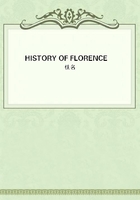
第101章
The Florentines were thus embarrassed by two contrary impulses, the wish to possess Lucca, and the dread of a war with Milan. As commonly happens, fear was the most powerful, and they consented, after the capture of Uzzano, that the count should go into Lombardy. There still remained another difficulty, which, depending on circumstances beyond the reach of their influence, created more doubts and uneasiness than the former; the count would not consent to pass the Po, and the Venetians refused to accept him on any other condition. Seeing no other method of arrangement, than that each should make liberal concessions, the Florentines induced the count to cross the river by a letter addressed to the Signory of Florence, intimating that this private promise did not invalidate any public engagement, and that he might still refrain from crossing; hence it resulted that the Venetians, having commenced the war, would be compelled to proceed, and that the evil apprehended by the Florentines would be averted. To the Venetians, on the other hand, they averred that this private letter was sufficiently binding, and therefore they ought to be content; for if they could save the count from breaking with his father-in-law, it was well to do so, and that it could be of no advantage either to themselves or the Venetians to publish it without some manifest necessity. It was thus determined that the count should pass into Lombardy; and having taken Uzzano, and raised bastions about Lucca to restrain in her inhabitants, placed the management of the siege in the hands of the commissaries, crossed the Apennines, and proceeded to Reggio, when the Venetians, alarmed at his progress, and in order to discover his intentions, insisted upon his immediately crossing the Po, and joining the other forces. The count refused compliance, and many mutual recriminations took place between him and Andrea Mauroceno, their messenger on this occasion, each charging the other with arrogance and treachery: after many protestations, the one of being under no obligation to perform that service, and the other of not being bound to any payment, they parted, the count to return to Tuscany, the other to Venice.
The Florentines had sent the count to encamp in the Pisan territory, and were in hopes of inducing him to renew the war against the Lucchese, but found him indisposed to do so, for the duke, having been informed that out of regard to him he had refused to cross the Po, thought that by this means he might also save the Lucchese, and begged the count to endeavor to effect an accommodation between the Florentines and the Lucchese, including himself in it, if he were able, declaring, at the same time, the promised marriage should be solemnized whenever he thought proper. The prospect of this connection had great influence with the count, for, as the duke had no sons, it gave him hope of becoming sovereign of Milan. For this reason he gradually abated his exertions in the war, declared he would not proceed unless the Venetians fulfilled their engagement as to the payment, and also retained him in the command; that the discharge of the debt would not alone be sufficient, for desiring to live peaceably in his own dominions, he needed some alliance other than that of the Florentines, and that he must regard his own interests, shrewdly hinting that if abandoned by the Venetians, he would come to terms with the duke.
These indirect and crafty methods of procedure were highly offensive to the Florentines, for they found their expedition against Lucca frustrated, and trembled for the safety of their own territories if ever the count and the duke should enter into a mutual alliance. To induce the Venetians to retain the count in the command, Cosmo de'
Medici went to Venice, hoping his influence would prevail with them, and discussed the subject at great length before the senate, pointing out the condition of the Italian states, the disposition of their armies, and the great preponderance possessed by the duke. He concluded by saying, that if the count and the duke were to unite their forces, they (the Venetians) might return to the sea, and the Florentines would have to fight for their liberty. To this the Venetians replied, that they were acquainted with their own strength and that of the Italians, and thought themselves able at all events to provide for their own defense; that it was not their custom to pay soldiers for serving others; that as the Florentines had used the count's services, they must pay him themselves; with respect to the security of their own states, it was rather desirable to check the count's pride than to pay him, for the ambition of men is boundless, and if he were now paid without serving, he would soon make some other demand, still more unreasonable and dangerous. It therefore seemed necessary to curb his insolence, and not allow it to increase till it became incorrigible; and that if the Florentines, from fear or any other motive, wished to preserve his friendship, they must pay him themselves. Cosmo returned without having effected any part of his object.